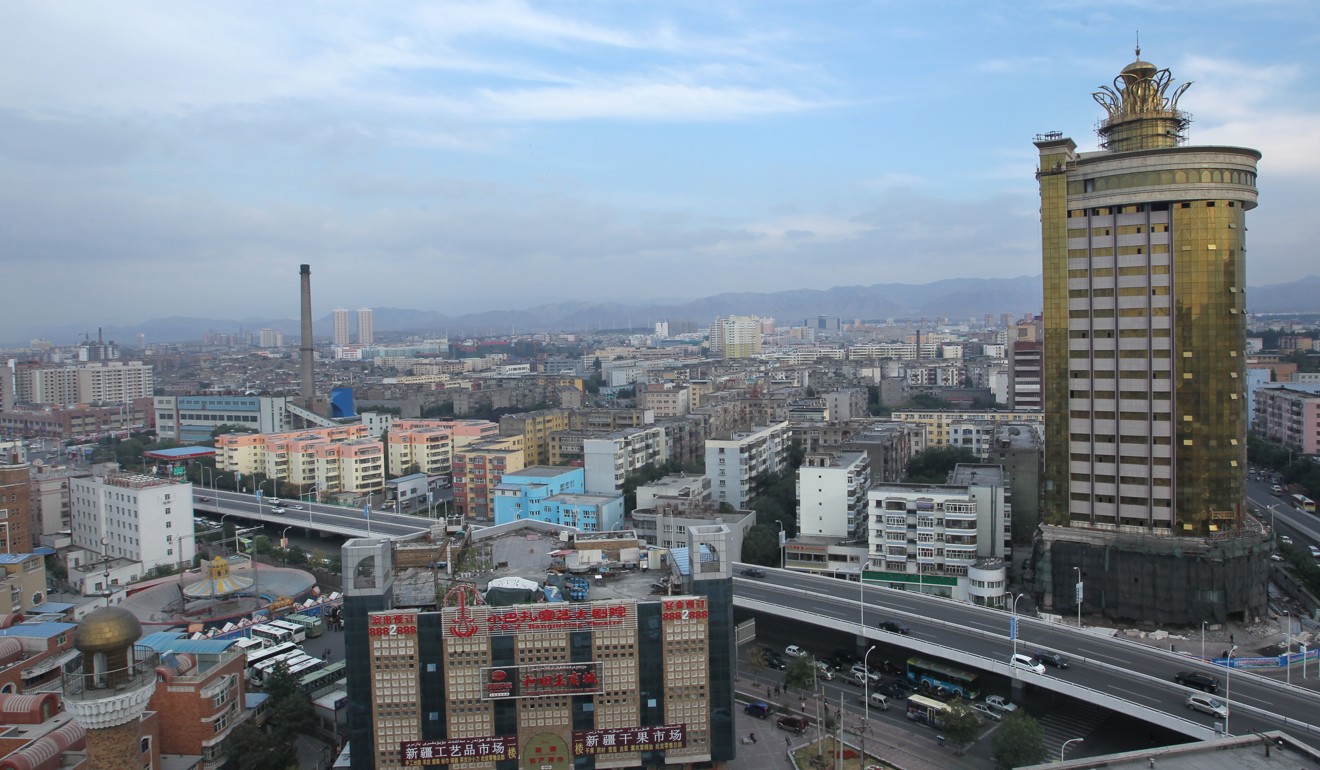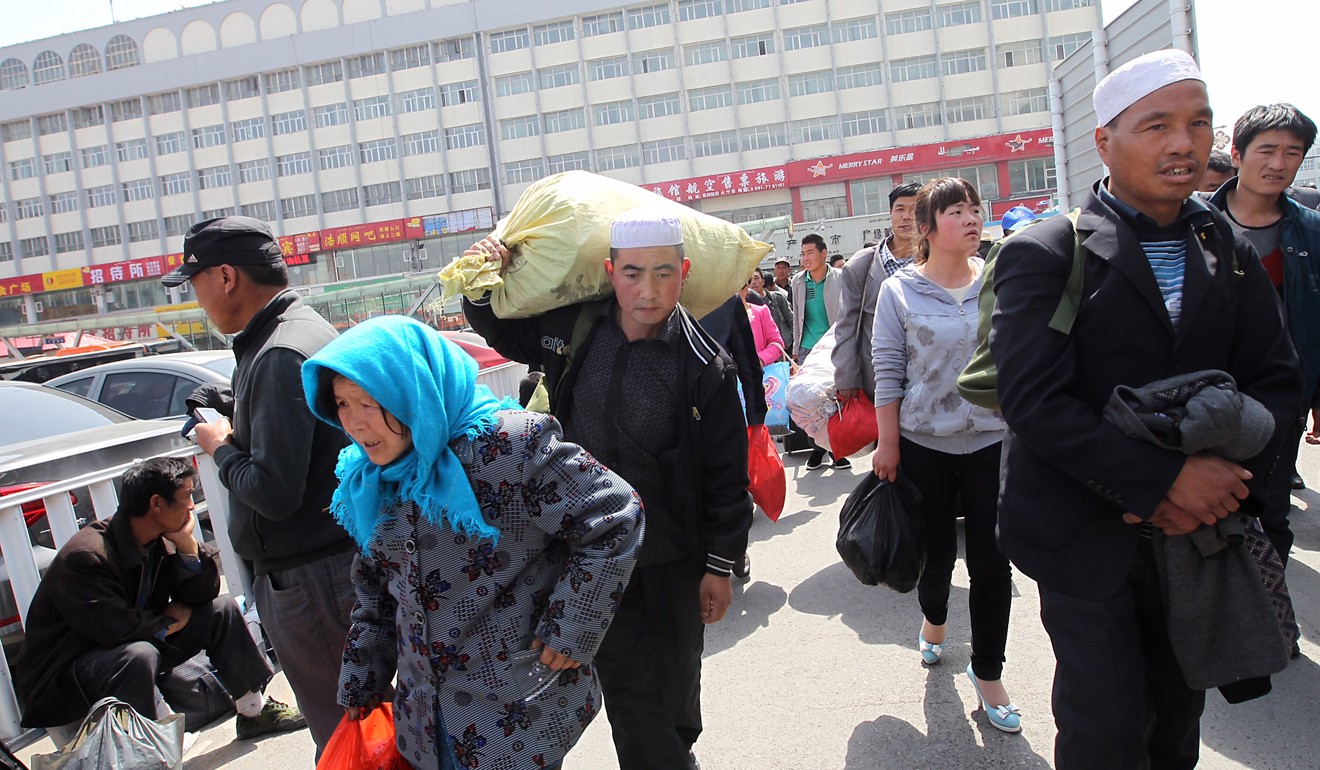
Passengers ordered to show ID cards to use subway as Chinese state tightens grip on restive Xinjiang region
Travellers using regional capital’s new metro system will have to register under their real name as security crackdown in Uygur heartland gathers pace
The first subway in the far western Chinese region of Xinjiang will soon be open for business – but only for passengers who present their identity cards when buying tickets.
The regulations will apply to the new transport network in the regional capital of Urumqi and their introduction comes amid a prolonged security crackdown in the heartlands of the Uygur ethnic minority.
Travellers in China have long been required to produce ID when buying train tickets and since March last year it became compulsory for long-distance bus rides.
But Urumqi will be the first city to require real-name registration on its metropolitan rail system.
The rail service will start trial operations by the end of June and should be fully open by the end of the year.
According to a regulation passed by the municipal legislature on Sunday, passengers will be required to register when buying tickets.
Those who buy tickets with other people’s ID cards will face a fine between 50 to 200 yuan (US$7.90-31.70).
Maya Wang, a senior researcher for Human Rights Watch who has closely followed the security situation there, said the requirement was “part of an ever tightening web of surveillance and control in Xinjiang”.
In the past decade, hundreds of people have been killed in ethnic violence between mainly Muslim Uygurs and the ethnic majority Han.

The government has blamed the bloodshed on Islamist extremists and separatists, but Uygur advocates say it is the government’s repression of religious freedom and unfair ethnic policies have fuelled resentment and violence.
The authorities have been ratcheting up security and surveillance measures throughout the region since 2016, including thousands of newly installed street-corner police stations.
The heavy human policing is coupled with the use of advanced monitoring technologies to build up what critics have called a “massive police state”.
Urumqi residents are frequently asked to provide their ID or undergo facial scans at the city’s numerous security check points.
“Think of how many checkpoints an Urumqi resident must go through every day,” Wang said. “And you are already required to use your real name for intra-city travel.”
Strict security measures were already in place on the city’s bus networks and in some stations no liquids, not even drinking water, were allowed, said one local resident who spoke on condition of anonymity.
“I think everyone is already mentally prepared for how strict the subways will be,” he said.

The first Urumqi subway line to open will link the city’s airport to the city centre. A further three lines are under construction.
In September, authorities in central China’s Hunan province announced that some subway and bus stations in the provincial capital of Changsha were preparing to introduce real-name registration and install facial recognition systems, but did not say when the scheme would be officially introduced.

